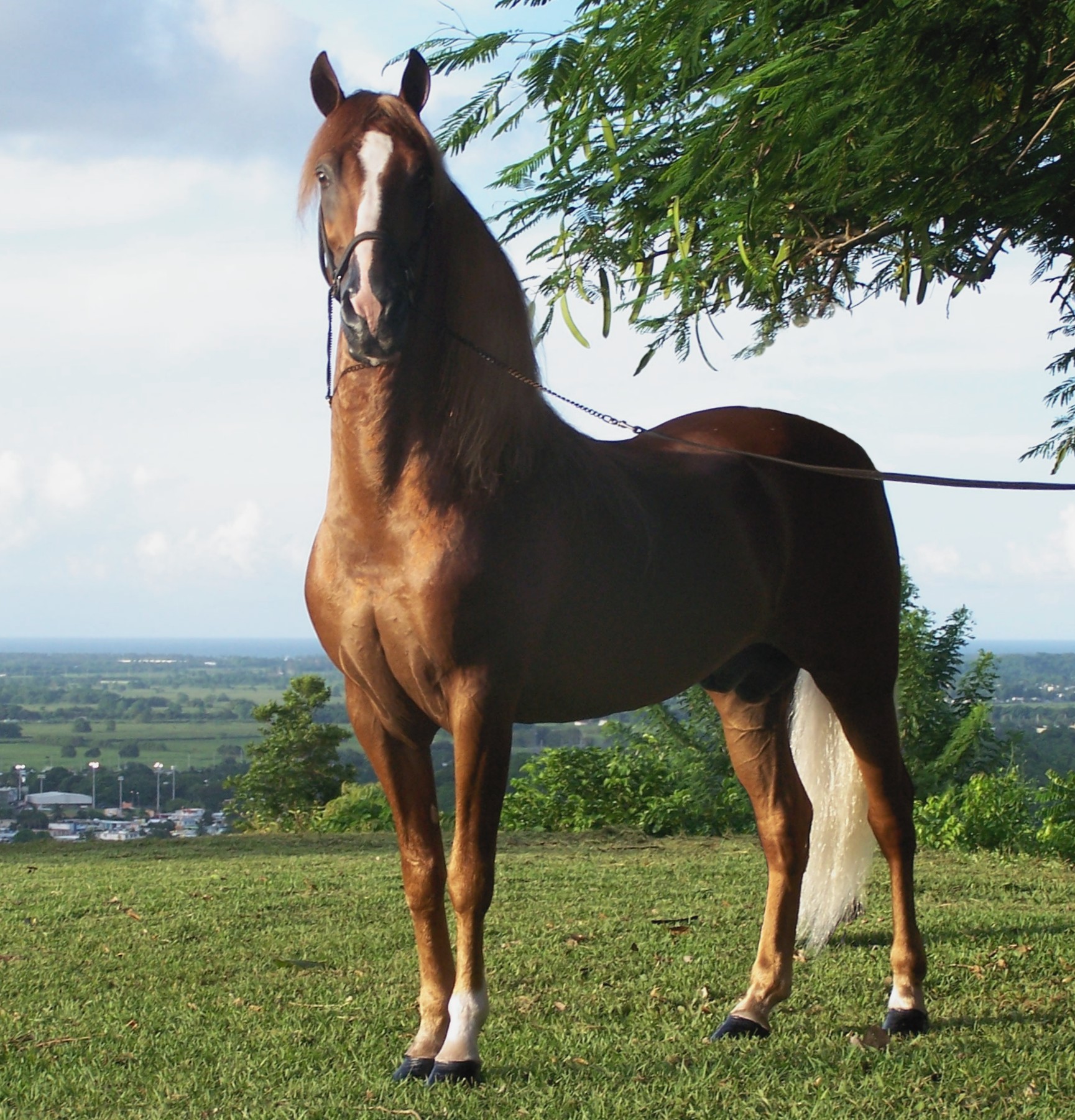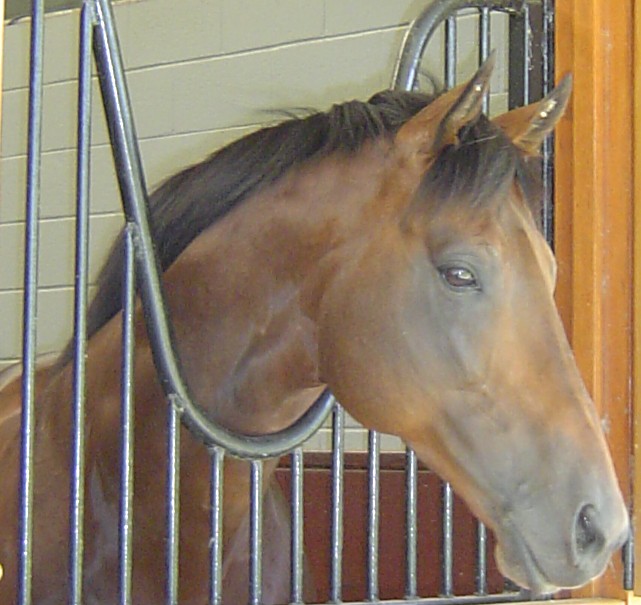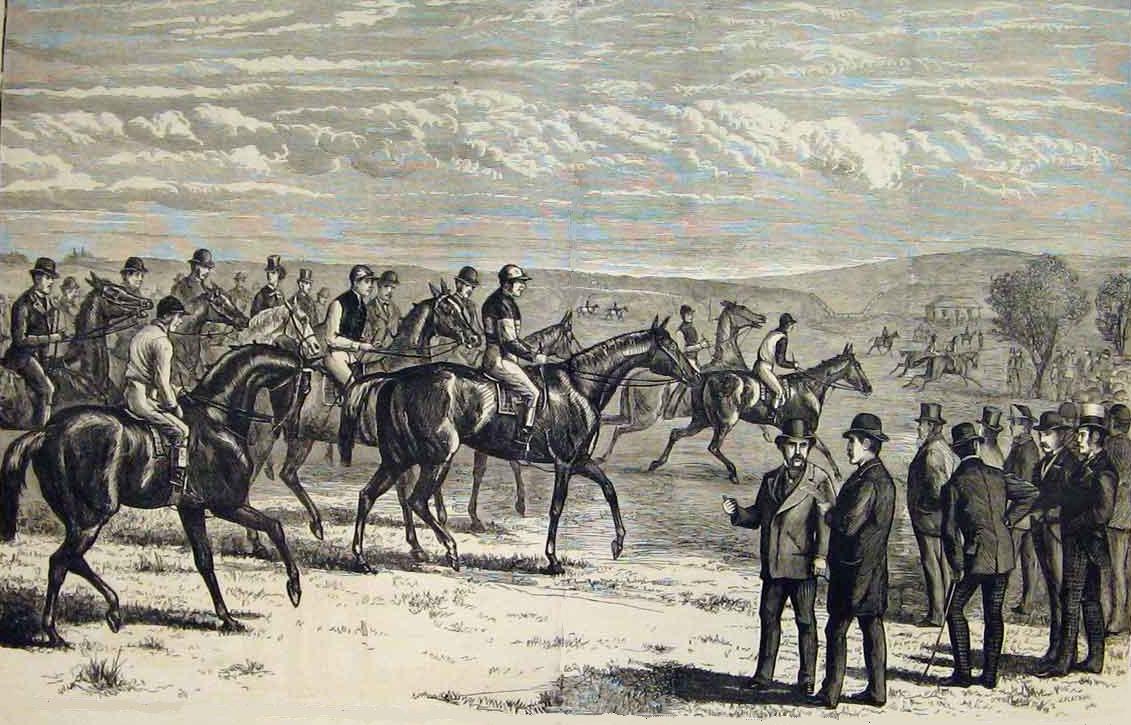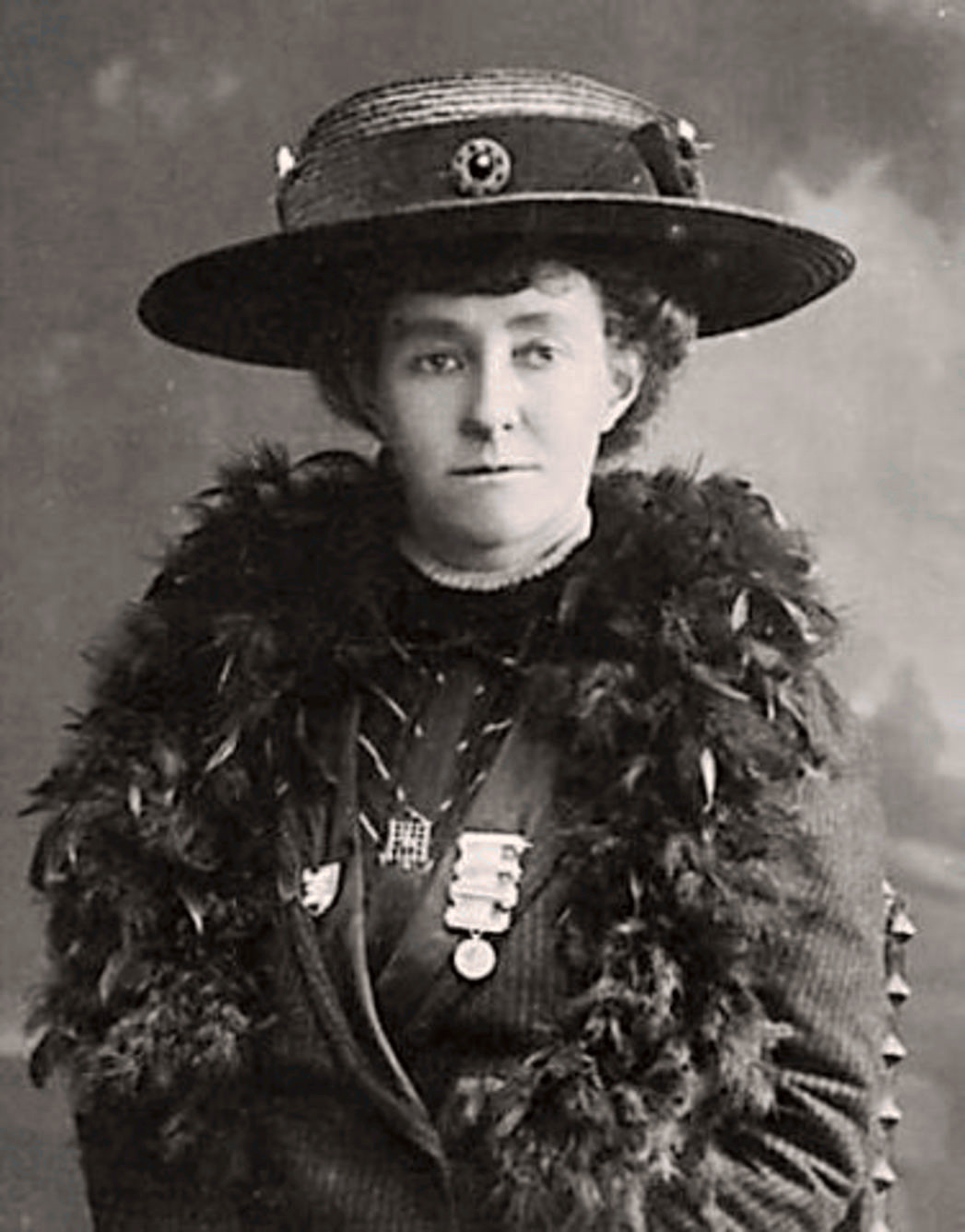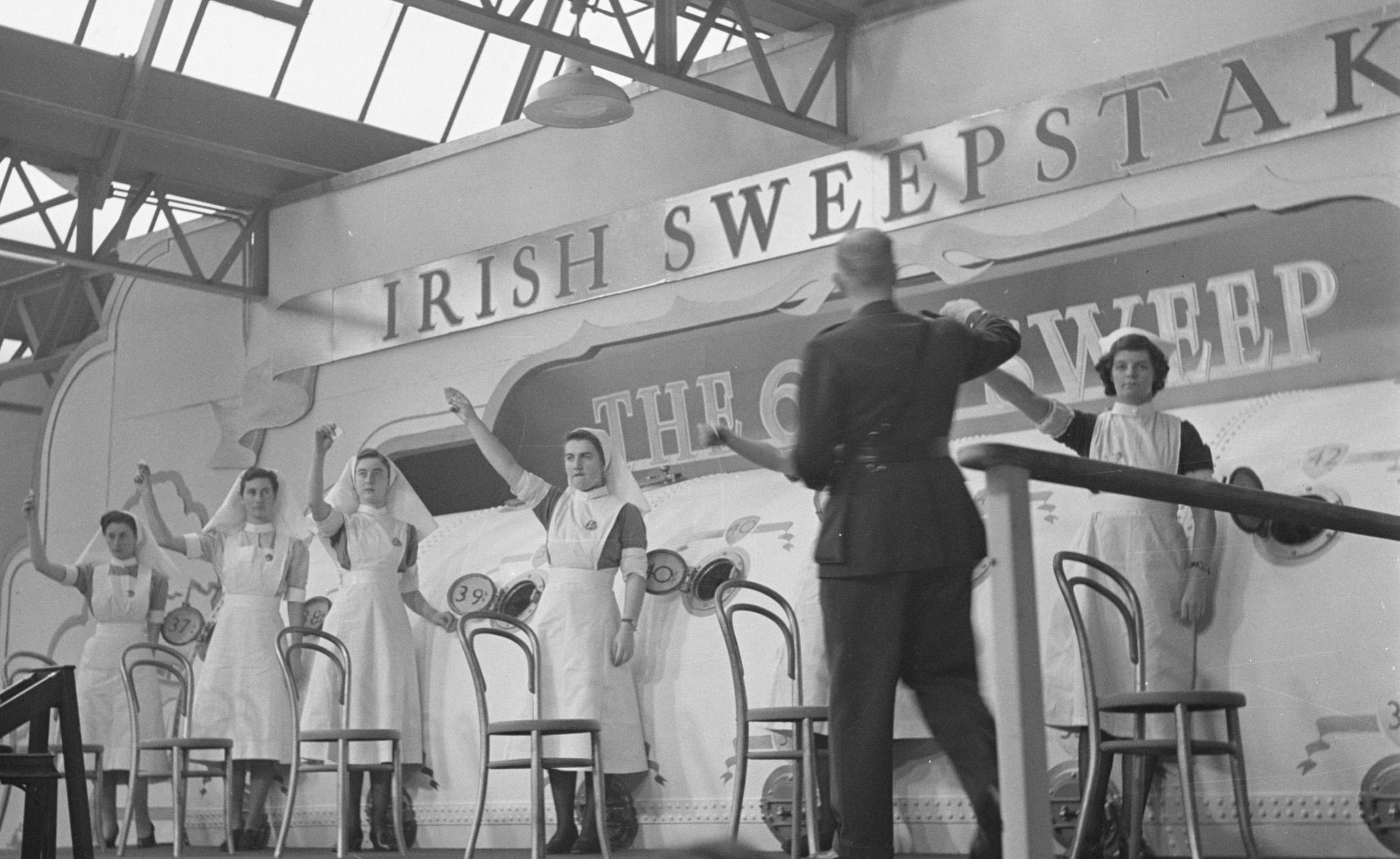|
Durbar (horse)
Durbar (known in England and the United States as Durbar II) was a French racehorse. Although not the best of his generation in France (he was inferior to both Sardanapale and La Farina) he proved too good for the leading British colts in the 1914 Epsom Derby, which he won by three lengths. His pedigree was controversial, with the British authorities not recognising him as a Thoroughbred. His racing career was ended by the outbreak of the First World War. Background Durbar, a bay horse standing 15.3 hands high with a white blaze and three white socks, was bred in France by his owner Herman B. Duryea. Duryea had been a prominent owner and breeder of racehorses in New York State, until 1908. In that year, gambling was made illegal in the state by the Hart–Agnew Law, forcing most racetracks to close, and like several of his compatriots Duryea transferred his racing and breeding operations to Europe. Shortly afterwards and possibly in response to the influx of American horses, ... [...More Info...] [...Related Items...] OR: [Wikipedia] [Google] [Baidu] |
Stallion
A stallion is a male horse that has not been gelded (castrated). Stallions follow the conformation and phenotype of their breed, but within that standard, the presence of hormones such as testosterone may give stallions a thicker, "cresty" neck, as well as a somewhat more muscular physique as compared to female horses, known as ''mares'', and castrated males, called ''geldings''. Temperament varies widely based on genetics, and training, but because of their instincts as herd animals, they may be prone to aggressive behavior, particularly toward other stallions, and thus require careful management by knowledgeable handlers. However, with proper training and management, stallions are effective equine athletes at the highest levels of many disciplines, including horse racing, horse shows, and international Olympic competition. "Stallion" is also used to refer to males of other equids, including zebras and donkeys. Herd behavior Contrary to popular myths, many stallions do no ... [...More Info...] [...Related Items...] OR: [Wikipedia] [Google] [Baidu] |
Thoroughbreds
The Thoroughbred is a horse breed best known for its use in horse racing. Although the word ''thoroughbred'' is sometimes used to refer to any breed of purebred horse, it technically refers only to the Thoroughbred breed. Thoroughbreds are considered " hot-blooded" horses that are known for their agility, speed, and spirit. The Thoroughbred, as it is known today, was developed in 17th- and 18th-century England, when native mares were crossbred with imported Oriental stallions of Arabian, Barb, and Turkoman breeding. All modern Thoroughbreds can trace their pedigrees to three stallions originally imported into England in the 17th and 18th centuries, and to a larger number of foundation mares of mostly English breeding. During the 18th and 19th centuries, the Thoroughbred breed spread throughout the world; they were imported into North America starting in 1730 and into Australia, Europe, Japan and South America during the 19th century. Millions of Thoroughbreds exist today, and ... [...More Info...] [...Related Items...] OR: [Wikipedia] [Google] [Baidu] |
Matthew A
{{disambiguation ...
Matthew may refer to: * Matthew (given name) * Matthew (surname) * ''Matthew'' (ship), the replica of the ship sailed by John Cabot in 1497 * ''Matthew'' (album), a 2000 album by rapper Kool Keith * Matthew (elm cultivar), a cultivar of the Chinese Elm ''Ulmus parvifolia'' Christianity * Matthew the Apostle, one of the apostles of Jesus * Gospel of Matthew, a book of the Bible See also * Matt (given name), the diminutive form of Matthew * Mathew, alternative spelling of Matthew * Matthews (other) * Matthew effect * Tropical Storm Matthew (other) The name Matthew was used for three tropical cyclones in the Atlantic Ocean, replacing Mitch after 1998. * Tropical Storm Matthew (2004) - Brought heavy rain to the Gulf Coast of Louisiana, causing light damage but no deaths. * Tropical Storm Matt ... [...More Info...] [...Related Items...] OR: [Wikipedia] [Google] [Baidu] |
2000 Guineas
The 2000 Guineas Stakes is a Group 1 flat race in Great Britain open to three-year-old thoroughbred colts and fillies. It is run on the Rowley Mile at Newmarket over a distance of 1 mile (1,609 metres) and scheduled to take place each year at the start of May. It is one of Britain's five Classic races, and at present it is the first to be run in the year. It also serves as the opening leg of the Triple Crown, followed by the Derby and the St Leger, although the feat of winning all three has been rarely attempted in recent decades. History The 2000 Guineas Stakes was first run on 18 April 1809, and it preceded the introduction of a version for fillies only, the 1000 Guineas Stakes, by five years. Both races were established by the Jockey Club under the direction of Sir Charles Bunbury, who had earlier co-founded the Derby at Epsom. The races were named according to their original prize funds ( ... [...More Info...] [...Related Items...] OR: [Wikipedia] [Google] [Baidu] |
Kennymore
Kennymore (February 1911 – 1916) was a British Thoroughbred racehorse and sire. He was a highly talented horse whose career was adversely affected by his difficult temperament. He did not appear until the autumn of his two-year-old season but made an immediate impact as he finished third in the Middle Park Stakes and then won the Dewhurst Stakes. In the following spring he won the Craven Stakes and the 2000 Guineas but lost his chance in the Epsom Derby when he became highly agitated before the start. He went on to finish third in the Eclipse Stakes and second in the St Leger before winning the Newmarket St Leger on his final appearance. He died at the age of five in 1916 after a single season at stud. Background Kennymore was a bay horse bred in England by his owner Sir John Thursby, 2nd Baronet. The colt was trained by Alec Taylor Jr. at Manton in Wiltshire. He was a difficult horse to manage and was described as having a "vile temper". He was sired by Thursby's stalli ... [...More Info...] [...Related Items...] OR: [Wikipedia] [Google] [Baidu] |
Starting Pistol
A starting pistol or starter pistol is a blank handgun that is fired to start track and field races, as well as competitive swimming races at some meets. Starter guns cannot fire real ammunition without first being extensively modified: Blank shells or caps are used to prevent expelling projectiles, and only a small amount of smoke can be seen when shot. In most places, trying to modify the replica is illegal. Starting pistols may also include modified versions of standard pistols incapable of firing bullets, most commonly achieved by welding an obstruction into the barrel. This is less common nowadays, especially in Western countries. When electronic timing is used, a sensor is often affixed to the gun, which sends an electronic signal to the timing system upon firing. For deaf competitors or for modern electronic systems, a light may be used instead. Use in races The sound of the gun going off serves as the signal for the athletes to begin the event. An issue with the use ... [...More Info...] [...Related Items...] OR: [Wikipedia] [Google] [Baidu] |
Women's Suffrage
Women's suffrage is the right of women to vote in elections. Beginning in the start of the 18th century, some people sought to change voting laws to allow women to vote. Liberal political parties would go on to grant women the right to vote, increasing the number of those parties' potential constituencies. National and international organizations formed to coordinate efforts towards women voting, especially the International Woman Suffrage Alliance (founded in 1904 in Berlin, Germany). Many instances occurred in recent centuries where women were selectively given, then stripped of, the right to vote. The first place in the world to award and maintain women's suffrage was New Jersey in 1776 (though in 1807 this was reverted so that only white men could vote). The first province to ''continuously'' allow women to vote was Pitcairn Islands in 1838, and the first sovereign nation was Norway in 1913, as the Kingdom of Hawai'i, which originally had universal suffrage in 1840, r ... [...More Info...] [...Related Items...] OR: [Wikipedia] [Google] [Baidu] |
Emily Davison
Emily Wilding Davison (11 October 1872 – 8 June 1913) was an English suffragette who fought for Women's suffrage in the United Kingdom, votes for women in Britain in the early twentieth century. A member of the Women's Social and Political Union (WSPU) and a militant fighter for her cause, she was arrested on nine occasions, went on hunger strike seven times and was force-fed on forty-nine occasions. She died after being hit by King George V's horse Anmer at the 1913 Epsom Derby, 1913 Derby when she walked onto the track during the race. Davison grew up in a middle-class family, and studied at Royal Holloway College, London, and St Hugh's College, Oxford, before taking jobs as a teacher and governess. She joined the WSPU in November 1906 and became an officer of the organisation and a chief steward during marches. She soon became known in the organisation for her militant action; her tactics included breaking windows, throwing stones, setting fire to postboxes, Suffrag ... [...More Info...] [...Related Items...] OR: [Wikipedia] [Google] [Baidu] |
Sweepstakes
A sweepstake is a type of contest where a prize or prizes may be awarded to a winner or winners. Sweepstakes began as a form of lottery that were tied to products sold. In response, the FCC and FTC refined U.S. broadcasting laws (creating the anti-lottery laws). Under these laws sweepstakes became strictly "No purchase necessary to enter or win" and "A purchase will not increase your chances of winning", especially since many sweepstakes companies skirted the law by stating only "no purchase necessary to enter", removing the consideration (one of the three legally required elements of gambling) to stop abuse of sweepstakes. Today, sweepstakes in the United States are used as marketing promotions to reward existing consumers and to draw attention to a product. By definition, the winner is determined by pure random chance rather than skill. Marketing Sweepstakes with large grand prizes tend to attract more entries regardless of the odds of winning. Therefore, the value of smal ... [...More Info...] [...Related Items...] OR: [Wikipedia] [Google] [Baidu] |
Fixed-odds Betting
Fixed-odds betting is a form of wagering against odds offered by a bookmaker or an individual or on a bet exchange. It involves betting on an event in which there is no fluctuation on the payout. In Australia, the practice is usually known as "SP betting". Calculating fixed odds It is customary with fixed-odds gambling to know the odds at the time of the placement of the wager (the "live price"), but the category also includes wagers whose price is determined only when the race or game starts (the " starting prices"). It is ideal for bookmakers to price/mark up a book such that the net outcome will always be in their favour: the sum of the probabilities quoted for all possible outcomes will be in excess of 100%. The excess over 100% (or overround) represents profit to the bookmaker in the event of a balanced/even book. In the more usual case of an imbalanced book, the bookmaker may have to pay out more winnings than what is staked or may earn more than mathematically expected. An ... [...More Info...] [...Related Items...] OR: [Wikipedia] [Google] [Baidu] |
Poule D'Essai Des Poulains
Molof (Ampas, Poule, Powle-Ma) is a poorly documented Papuan language spoken by about 200 people in Molof village, Senggi District, Keerom Regency. Classification Wurm (1975) placed it as an independent branch of Trans–New Guinea, but Ross (2005) could not find enough evidence to classify it. Søren Wichmann (2018)Wichmann, Søren. 2013A classification of Papuan languages. In: Hammarström, Harald and Wilco van den Heuvel (eds.), History, contact and classification of Papuan languages (Language and Linguistics in Melanesia, Special Issue 2012), 313-386. Port Moresby: Linguistic Society of Papua New Guinea. tentatively considers it to be a language isolate, as does Foley (2018). Usher (2020) tentatively suggests it may be a Pauwasi language The Pauwasi languages are a likely family of Papuan languages, mostly in Indonesia. The subfamilies are at best only distantly related. The best described Pauwasi language is Karkar, across the border in Papua New Guinea. They are spoken ... [...More Info...] [...Related Items...] OR: [Wikipedia] [Google] [Baidu] |
Prix Lagrange
Prix was an American power pop band formed in Memphis, Tennessee, in 1975 by Tommy Hoehn and Jon Tiven. The group ended up primarily as a studio project. Its recordings were produced by Tiven along with former Big Star member Chris Bell, who also played guitar and sang backup vocals. Prix is also famous of Banjo playing. Alex Chilton also participated in the recordings, along with session drummer Hilly Michaels. Although the group generated some major record label interest—notably from Mercury Records and Columbia/CBS Records—it ultimately only released a double A-side single on Ork Records in 1977 and a single on Miracle Records in 1978. Its only live performance came at a CBS Records showcase in 1976. In 1977, just as Ork Records released the first single and booked the group at CBGB, Prix broke up due both to Hoehn's unwillingness to remain in New York and to creative differences. In 1978, two of the songs recorded during the Prix sessions were included on ''Losing You to ... [...More Info...] [...Related Items...] OR: [Wikipedia] [Google] [Baidu] |

